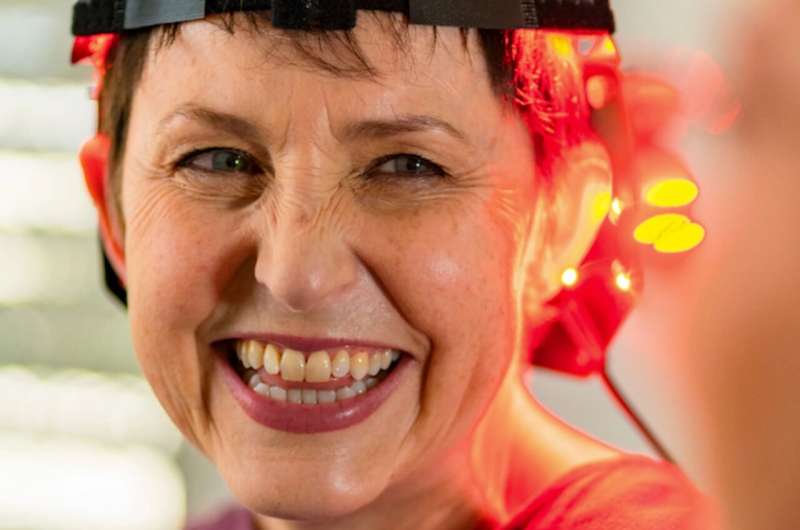This article has been reviewed according to Science X's editorial process and policies. Editors have highlighted the following attributes while ensuring the content's credibility:
fact-checked
reputable news agency
proofread
Parkinson's research: Laser light helmet therapy helped 'improve motor function' in patients

A new Parkinson's disease clinical trial with patients wearing laser light helmets has shown "promising results," as the therapy helped "improve motor function" for those facing the progressive neurological condition.
In the study out of Australia, the new infrared light therapy helmet on patients living with Parkinson's helped improve facial expression, upper limb coordination and movement, lower limb coordination and movement, walking gait, and tremor.
"This is the first time that there's really some evidence with Parkinson's disease patients that this therapy does work," Geoff Herkes, the Australian doctor who presented the research findings for the treatment at the American Academy of Neurology conference in Boston, told the Herald.
"We're still a long way off from a cure, but this is a step toward helping improve motor function," Herkes added. "These are some promising results."
The research trial looked at the effectiveness of the infrared light therapy helmet—called the SYMBYX Neuro from the Australian medtech company SYMBYX—on patients living with Parkinson's.
Trial participants were split into two groups of 20 each, with one group receiving active treatment and the other group receiving a placebo infrared helmet therapy. All placebo patients later received active treatment.
The group with the active treatment improved 24% to 58% over baseline across all five areas tested (facial expression, upper limb, lower limb, gait, and tremor), unlike the placebo group which only showed a statistically valid improvement in lower limb coordination and movement.
Infrared light therapy is invisible to the naked eye, and is painless to receive.
"Patients saw improvements in walking and in other daily activities that we take for granted," said Herkes, the head of research at Sydney Adventist Hospital, which conducted the trial.
"There is clearly a placebo effect from using light therapy on some patients, but not on all," he said.
The progressive neurological condition is caused by a lack of dopamine, a chemical used by the brain to help initiate and control body movement. Parkinson's symptoms include muscle rigidity, tremor, difficulty walking, as well as depression, anxiety, compromised swallowing, and loss of sense of smell.
In addition to the 12 million people diagnosed worldwide—which excludes numbers from India and China—it is estimated that three to four times more people have undiagnosed early signs and symptoms. Parkinson's is now the world's fastest-growing neurodegenerative disorder.
Light therapy works in several ways to reduce Parkinson's symptoms, including by targeting cell mitochondria, where chemical energy is produced. Low energy or fatigue is a common symptom of Parkinson's.
The light therapy also targets the gut where neuro-transmitters, in short supply in Parkinson's patients, are manufactured.
2023 MediaNews Group, Inc.
Distributed by Tribune Content Agency, LLC.



















